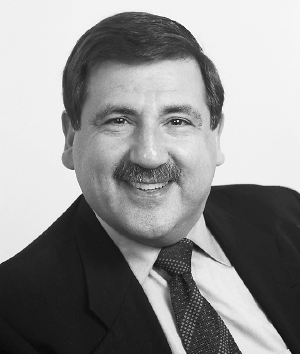U.N. Puts So-Called Conversion Therapies In Spotlight as Human Rights Issue
Abstract
The U.N. joins with a religious organization to explore harm caused by therapists claiming to be able to change sexual orientation, as the practice spreads beyond the U.S.
APA and other medical and mental health organizations are on record as opposing efforts to change individuals’ sexual orientation, stressing their potential for causing psychic damage and the lack of evidence for their efficacy. Now the United Nations (U.N.) has ventured into that emotion-laden issue from an international perspective with a panel discussion on these attempts to “cure” homosexuality through questionable therapies.

Jack Drescher, M.D.: “Since human rights are central to the mission of the United Nations, drawing attention to the misuses of ex-gay propaganda is an important step forward in protecting the rights of gay people in the U.S. and overseas.”
Among those on the program, titled “Selling the Promise of Change: International Health and Policy Consequences of Sexual Orientation Change,” was New York psychiatrist Jack Drescher, M.D., who is also president of the Group for the Advancement of Psychiatry.
Issues related to gay, lesbian, bisexual, and transgender rights have largely been absent from the U.N.’s agenda, and the session came at a time when litigation in two states—California and New Jersey—is aimed at outlawing so-called conversion therapies when directed at minors. The program’s mission was to explore “legalities, ethics, and science behind the movement promoting sexual orientation change efforts and its relationship to international human rights.” Panel members were chosen to ensure that the discussion of the issue presented “medical, political, international, legal, academic, personal, and religious perspectives.”
The program’s organizers—the Unitarian Universalist United Nations Office and U.N-affiliated nongovernmental organization committees focused on human rights and on HIV/AIDS—pointed out that “the notion that people can or must change their orientation to conform with cultural or religious norms often intersects with legislation, mental health, HIV/AIDS prevention, violence against women, and religious freedoms.”
In addition to Drescher, who drafted APA’s 2000 position statement on sexual orientation conversion therapy, panel members were Toiko Kleppe, of the U.N. Office of the High Commissioner for Human Rights; Sam Wolfe, an attorney with the Southern Poverty Law Center who has filed suit against a conversion-therapy organization on behalf of a former client who says he was severely harmed by what he endured; Chaim Levin, a “survivor” of a conversion-therapy attempt and a plaintiff in the New Jersey case; Rebecca Jordan-Young, Ph.D., a professor of women’s, gender, and sexual studies at Columbia University; and Pastor Jay Bakker of Revolution Church and the son of televangelists Jim and Tammy Faye Bakker.
Medical Community Has Rendered Verdict
Drescher stressed to the audience that the meeting was not arranged as a forum for debating the validity of conversion therapy. While its advocates may frame the issues involved as if they are debatable, he said, there is no real debate going on in the medical or mental health communities—the so-called therapies have been shown to be ineffective. The debate has largely moved to cultural issues that have an impact on efforts to force people to change their sexual orientation. He also reviewed the history of how same-sex attraction has been viewed by the mental health field, including APA’s 1973 decision to remove homosexuality from its diagnostic manual, which dramatically shifted the ground supporting the notion that homosexuality was a mental illness.
“One reason for the international interest is the decline in such interest in the ex-gay movement in the United States,” after an absence of evidence that it works, Drescher told Psychiatric News. In addition, “some of the people who tried to change their orientation have been hurt by these interventions, and there is a growing number of individuals who are publicly coming forward and organizing themselves as ‘ex-gay’ survivors with warnings about the harm done by efforts to change sexual orientation,” he pointed out.
Troubling Film Shown
One feature of the session was a showing of a film about Uganda’s policy on sexual orientation and a bill in its legislature that would impose extremely harsh penalties on those who engage in homosexual behavior, including death for “serial homosexuals.” The feature-length film, “God Loves Uganda,” explores “the role [that] Western Evangelicals play in spreading hate and intolerance” in that country and focuses on speakers from the United States and other countries who preach the message that “being gay is something that should be ‘cured.’ ” The Unitarian Universalist U.N. Office said the film shows how “treating homosexuality like a treatable disease can lead to international human-rights violations.”
The belief driving conversion-therapy practitioners is “the idea that gay people are somehow broken, that we need to be fixed,” Wolfe said during the panel discussion. He identified himself as a “survivor” of such therapies.
“Since human rights are central to the mission of the United Nations, drawing attention to the misuses of ex-gay propaganda is an important step forward in protecting the rights of gay people in the U.S. and overseas,” Drescher said. ■



